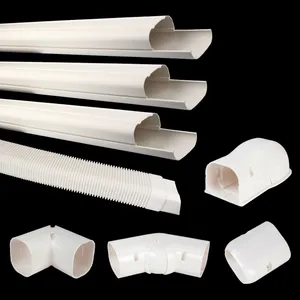Introduction to HVAC Manual D
The HVAC Manual D is an essential guideline for designing and implementing residential heating, ventilation, and air conditioning systems. It provides detailed methodologies for calculating duct sizes and layouts, ensuring optimal airflow and energy efficiency within a home. This manual serves as a pivotal resource for engineers, HVAC contractors, and system designers seeking to establish effective and compliant HVAC systems.
Types of HVAC Manual D Applications
The HVAC Manual D covers several applications, each critical for creating efficient heating and cooling systems. Understanding these applications is key to effective HVAC design.
- Residential Duct Design: Focuses on duct sizing and routing in homes, ensuring that each room maintains comfortable temperatures.
- Load Calculations: Provides methods for calculating heating and cooling loads, crucial for selecting the appropriate HVAC equipment.
- Ventilation Requirements: Addresses the proper amount of fresh air needed in different spaces, balancing energy efficiency with air quality.
- System Zoning: Offers guidelines for creating multiple comfort zones within a residence to cater to varied usage and preferences.
Features of HVAC Manual D
The HVAC Manual D is built with several features that set it apart as a comprehensive resource for HVAC professionals.
- Detailed Guidelines: Offers exhaustive instructions on duct design principles, including friction loss, air velocity, and pressure balancing.
- Compliance Focused: Aligns with the latest building codes and industry standards, ensuring that design practices meet regulatory requirements.
- Visual Aids: Includes diagrams, charts, and tables for easy reference and improved understanding of complex concepts.
- Practical Examples: Features case studies and real-world examples that put theories into practice, enhancing learning outcomes.
How to Use HVAC Manual D Effectively
Utilizing the HVAC Manual D effectively can lead to significant improvements in system performance and energy savings. Here is how to make the best use of this essential guide:
- Familiarize Yourself: Take time to thoroughly read the manual and understand its structure, as it covers a wide range of topics and applications.
- Use Software Tools: Integrate manual guidelines with design software for enhanced accuracy in calculations and documentations.
- Consult with Peers: Engage with colleagues or seasoned professionals to discuss complex topics, ensuring a clearer understanding of the manual's content.
- Regularly Refer Back: Keep the manual handy for ongoing projects to ensure compliance with prescribed methods and standards throughout the design process.






















































